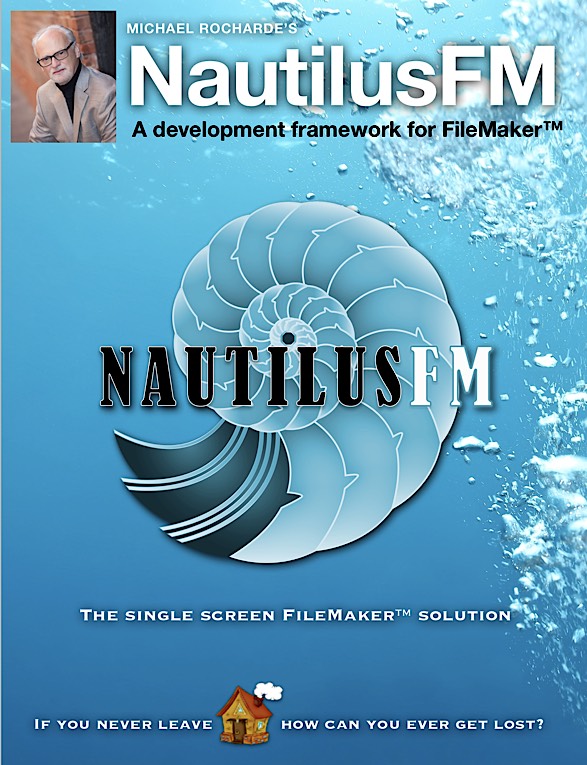Contains chapters on
Introduction to NautilusFM
NautilusFM for Organizations
The Fundamentals
Relationships
Card Windows
Managing Inventory
Managing Invoices
Managing Users
List Views
The Example File
Building the Interface
Adding Items to an Invoice
Developing from the Users Point of View
Adding New Records
Deleting Records
Custom Functions
Learning & Using NautilusFM
Advanced Tips & Tricks
This ebook is a step-by-step guide to building your very own NautilusFM solution from scratch. Having said that, however, the NautilusFM file (with more than 100 hours of programming in it) is available for $495, or $695 with 2 hours of consultancy, has all of the work done for you and can be used as a base for completing your own projects or for converting an existing one. In fact, as is, it is ready to use for almost any business, is simple to extend, uses best practices throughout, and is a perfect starter solution
Included is a chapter with quite a number of advanced tips and tricks (techniques) that are used in NautilusFM. Perhaps advanced is not the correct description as some of them are fairly simple but they’ve taken years and years of working with FileMaker to discover and now any developer, even rank beginners, can take advantage of them without having to go through the long learning curve.
Every technique started with somebody trying to solve a problem and when they did, as is the way of the FileMaker community, they wanted to, and did, share it with everybody they knew and many they didn’t. Some of those people further developed those techniques into something more powerful or more flexible or just adapted it for a different problem and thus the cycle goes on.
All good developers are problem solvers; in fact, it’s an essential skill, but it’s more than that. What it is is an inability to give up; to keep working on a problem until it is solved. Thinking outside the box is also part of that skill and the more outside the box you can think, the better. Another term for thinking outside the box is one that seems to have fallen out of use and that is lateral thinking.
Imagine you are organizing a singles tennis knockout tournament with 500 players. When a player loses a match, he is knocked out until only one person remains. How many matches have to be played for the winner to be declared?
Normal logic would go something like this.
In round 1, there are 250 matches. In round 2, there are 125 matches making a total of 375 matches. In round 3, there are 62 matches but there’s one extra player so he gets a bye which means a total of 63. Add that 63 to 375 and you get 438 and so on.
The lateral thinker says there are 500 players and 1 winner so there are 499 matches.
Where this makes a difference is in the time it took to arrive at the right answer and this is important because time is the most valuable commodity any of us have; the better you use that time, the more you can achieve.
Ultimately though, it’s not about the time it took; it’s about solving the problem which is, for me, the best reward. NautilusFM is full of such rewards.

